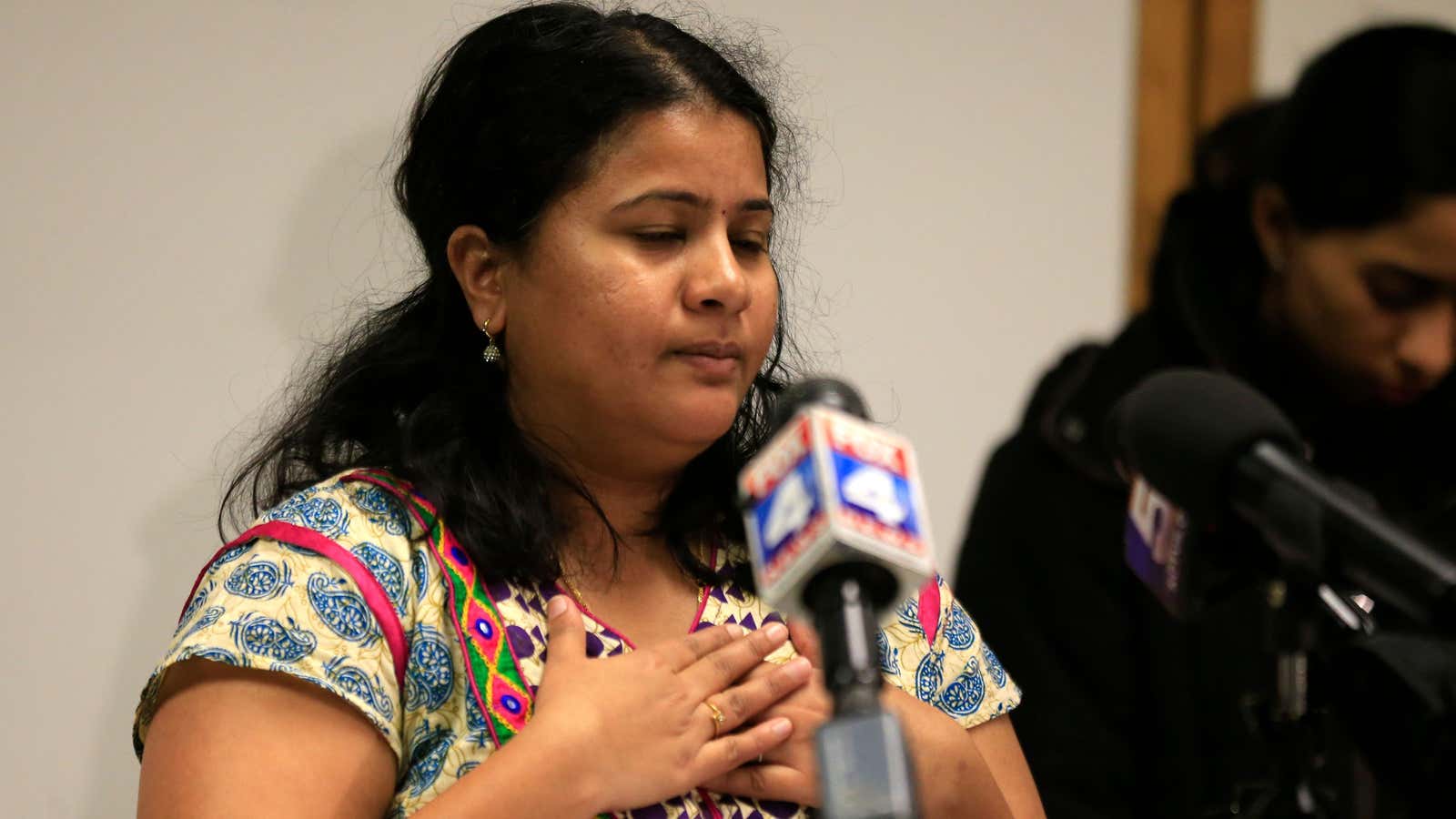In February last year, Srinivas Kuchibhotla, a 33-year-old techie of Indian-origin, was gunned down in a racist attack in Kansas, US. “Get out of my country,” his shooter had yelled.
The incident brought to light the pervasive anti-immigrant sentiment in the US.
A year-and-a-half on, a heartbreaking 14-minute documentary titled Do We Belong? by Sofian Khan features Kuchibhotla’s wife, Sunayana Dumala, speaking of her husband. She recounts their first meeting at a temple in their south Indian hometown of Hyderabad, a fun-filled married life that followed, and the eventual tragedy.
In the film, Khan has sought to highlight how easily biases work against immigrants in America.
Born to an English mother and a Pakistani father in Long Island, New York, Khan knows exactly what it’s like to grow up brown in America.
“I’m mixed race but my appearance is much more south Asian, and I think that definitely shaped my experience growing up here, as well as my own sense of cultural identity,” Khan told Quartz. “And it’s not at all a negative thing, or at least it wasn’t before 9/11.”
In the aftermath of the 2001 tragedy, Khan recounts the nasty backlash against anyone who looked remotely Muslim—even in a diverse, metropolitan state like New York. Since the Trump administration took power, a similar rhetoric has reared its ugly head again.
“In Srinivas’s case in Kansas, he happened to be Hindu, but was identified by his killer as a Muslim,” Khan said. “And there are lots of cases of Sikhs being targeted because of their turbans and beards.”
Through Kuchibhotla’s story, Khan hopes to humanise the heightening hate-crime crisis in the country once proudly known as a “nation of immigrants.”
Below are edited excerpts of Khan’s interview over email with Quartz:
What drove you to make this film?
In the lead up to the US presidential elections, it was clear that we were experiencing a spike in hate crimes and discrimination. And that’s a trend that continued after the inauguration, with the rhetoric around the travel ban fueling anti-Muslim hate crimes and other incidents at a level unseen since the days after 9/11. At that time, in early 2017, I was working on a short film for Laura Poitras’s Field of Vision series about the first weeks of the travel ban, following Muslim-American activists at the airports and in mosques. But at the same time, I was reading about these incidents and felt the need to document the ugly side of what was happening (and still is).
Why did you decide to tell Kuchibhotla’s story?
As the son of immigrants, that experience of coming to another country has always been a part of my own story, even if I was born here myself. And in many ways, Srinivas’s story echoed my own father’s arrival in the US. His work ethic and cheerful persona felt familiar to me. I immediately found myself identifying with Srinivas as I read about his tragic fate.
The other major element that drew me into the story was his wife, Sunayana, who the piece focuses on. Her message and her strength were what convinced me that this was something I needed to pursue. I hadn’t gotten a sense from any of the existing coverage of really being in her shoes and hearing their story from her perspective. And the fact that she had started an organisation to fight hate crime, that she was trying to take the pain of her loss and to shape it into something positive, was deeply compelling.
Have you personally faced any discrimination or racism in the US?
I had a few unpleasant incidents where I found myself being singled out, and in one case a construction worker “citizen’s arrested” me because he thought I was filming a bridge. On the whole, though, I was pretty lucky. But many others were not. A taxi driver friend from Pakistan was stabbed and had his wrist broken by a passenger who called him a terrorist. And in the same neighbourhood, a store was badly vandalised with racial slurs and threats. These are the same kinds of things we’re seeing on the rise again now.
How do you think making films about these topics helps?
As a filmmaker, it’s the best I can do to contribute with my skill set. I’m not sure how effective it is since it’s something that’s pretty impossible to measure, but I see so much content being disseminated on the internet that is hateful and aimed at dehumanising others. I can only hope that work like this can offer a counterbalance.
